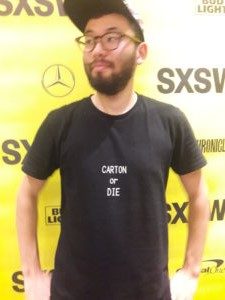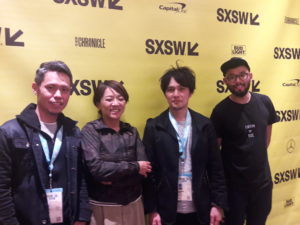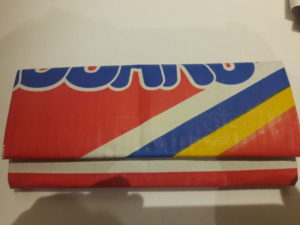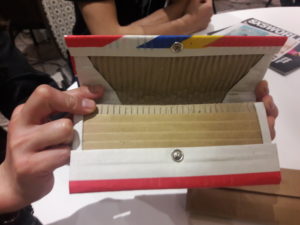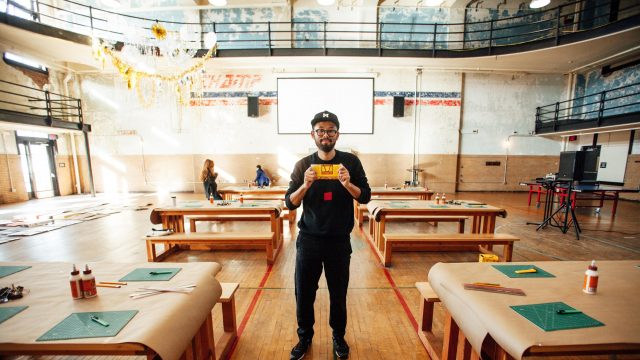By Mark Saldana
Rating: 4 (Out of 4 Stars)
One of the first SXSW films I watched this year was this incredible and beautiful documentary. Director Ryusuke Okajima tells the amazing story of Japanese artist and craftsman Fuyuki Shimazu whose singular passion involves the upcycling of used cardboard. Fuyuki has spent years traveling all over the world searching for remarkable cartons and boxes. He then takes these findings and transforms them into adorable and practical items–particularly wallets and business card holders. Okajima and his crew follow Fuyuki’s journey as he ponders the origins of a unique potato carton and proceeds to discover its various sources. It truly is a fascinating and beautiful journey with an important and practical message about the wastefulness of humanity.
Ryuuske Okajima’s film really captured my heart and definitely makes one reconsider things people often take for granted. A simple box requires work, artistry and craftsmanship and these are things that Fuyuki Shimazu appreciates and hopes to highlight, acknowledge and preserve through his work. The wallets themselves are not just practical objects themselves, but are symbolic of life, beauty and human connection. This is clearly evident as Fuyuki Shimazu meets the people responsible for the potato box and how it not only represents work it took to make it, but also the stories and lives of the people who created it.
During the festival, I sat down with the film’s producer Yuko Shiromaki (who also served as a translator), director Ryusuke Okajima, score composer Daichi Yoshida, and the artist himself, Fuyuki Shimazu who all graciously agreed to do an interview.
Mark Saldana: (To Yuko and Ryusuke) How did you all discover Fuyuki and did you instantly realize that you wanted to make a film about him?
Yuko Shiromaki: I had been working Fuyuki for another film when he worked for a big advertising company. I hired him to design a movie poster. Later, he told me he was quitting to become a cardboard picker. He wanted to make a film about it because he had been to 20 to 25 countries for cardboard and he already had a lot of footage that he shot for himself. He thought I could just edit it and turn it into a film, but it just doesn’t work that way. I brought in Ryusuke and we worked together on the story.
Ryusuke Okajima: We spent a lot of time shooting and I began to really understand how much he likes cardboard, but I found it hard to make it into a feature film. What is the message to the audience? Where is the goal? At first, I didn’t know the word, “upcycling.”
Mark: (To Daichi) I really enjoyed the music of the film and found it very fitting to Fuyuki and what happens in the film. Talk about the process of scoring Fuyuki’s journey.
Daichi Yoshida: The music started with something unique and gets more dramatic as we follow the story. So I wrote it first, but had to tweak it because during the making of the film, the story was constantly changing. When you are taking this journey with the potato box, we were discovering something deeper as he did.
Mark: Fuyuki, for those who haven’t seen the film, what does cardboard mean to you?
Fuyuki: Cardboard, particularly dumped cardboard is just trash to some people, but to me it is treasure, a very precious thing.
Yuko: Everywhere we go, he looks in dumpsters to find beautiful dumped cardboard.
Daichi: He finds new cardboard everyday–even in Austin.
